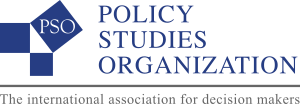
Sport United Conference
On Sport and Esport Management
Previous Program Recording:
2024
AIMS AND SCOPE:
The Policy Studies Organization, in cooperation with the Department of Sport Management & Esport at American Public University System, present a Sport Management and Esport conference that brings together stakeholders from across the game, including academics, students, industry professionals, athletes, and parents. The two-day inaugural conference will convene November 7-8th, 2024 to allow for interactive presentations and discussions regarding the present-day trends impacting the Sport and Esport industries.
Sport continues to evolve at a rapid rate with the redistribution of conferences, redefinition of amateurism, expansion/development of leagues, and the influence of technology/AI. This conference provides an opportunity for stakeholder groups to come together to share knowledge/data, challenge norms, and contribute their unique perspectives to the management of Sport & Esport as we work together to move these industries forward. Presentations that involve participants and foster conversation are encouraged!
TRACKS:
- NIL & Amateurism : This track focuses on all aspects of NIL and amateurism. Submissions to this strand should address topics such as dealmaking, player relations, ethical & legal concerns, brand building, athlete/parent preparation, esport scholarships/earnings, and institutional stakeholders (governing bodies, leagues, universities, teams).
- Innovation – Technology and AI: This strand focuses on innovation in the Sport and Esport sectors. Technology and AI are reshaping the way that we view, participate, and engage with sport. Submissions to this track should address topics such as using technology/AI for performance enhancement, innovation in equipment, virtual/augmented reality, and predictive analytics.
- Coaching & Athlete Development: This strand focuses on management practices in sport and Esport. Submissions to this track should address topics such as training, well-being, leadership, recruitment and retention of athletes, and athlete development.

